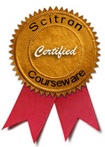Duration: 1 day
Today’s workforce is experiencing job burnout and stress in epidemic proportions. Workers at all levels feel stressed out,
insecure, and misunderstood. Many people feel the demands of the workplace, combined with the demands of home,
have become too much to handle. This one-day workshop explores the causes of such stress, and suggests general and
specific stress management strategies that people can use every day.
How You Will Benefit:
- • Understand that stress is a positive, unavoidable part of everybody’s life
- • Recognize the symptoms that tell you when you have chronic stress overload
- • Identify those situations in your life that cause you the greatest stress
- • Identify those actions which add to your stress
- • Change the situations and actions that can be changed
- • Deal better with situations and actions that can’t be changed
- • Create an action plan for work, home, and play to help reduce and manage stress
What You Will Cover:
Defining Stress and How It Affects Us
What Is Stress About?
Building a Solid Foundation
Mental Strategies
Stress at Work
Stress at Home
Time Management Tips
Drainers and Fillers
Defining Stress and How It Affects Us
To begin, participants will discuss how they would currently handle stressful situations. Participants will also
define stress, and they will learn what their score on the pre-assignment (the Holmes-Rahe stress scale) means.
To conclude the session, participants will discuss the role of gender and health on stress.
What Is Stress About?
This session will explore the four things that stress is about. Participants will also learn about the positive
effects of stress and what eustress is.
Building a Solid Foundation
Next, participants will learn about the four pillars of stress management. Special focus will be given to
relaxation techniques.
Mental Strategies
This session will give participants two mental strategies to manage stress.
Stress at Work
During this session, participants will complete a stress inventory to help them identify areas of stress at work.
Participants will also identify some solutions for work-related stress.
Time Management Tips
A little bit of planning can go a long way towards reducing stress. Participants will work in small groups to
brainstorm ways of managing time.
Stress at Home
Next, participants will get some tips on running their household in a way that reduces stress, including
budgeting, planning meals, general organization, and chores.
Drainers and Fillers
To wrap things up, participants will identify the things that drain and energize them. They will also take
another look at the stressful situations from this morning to see how they might approach those situations
differently now.


















